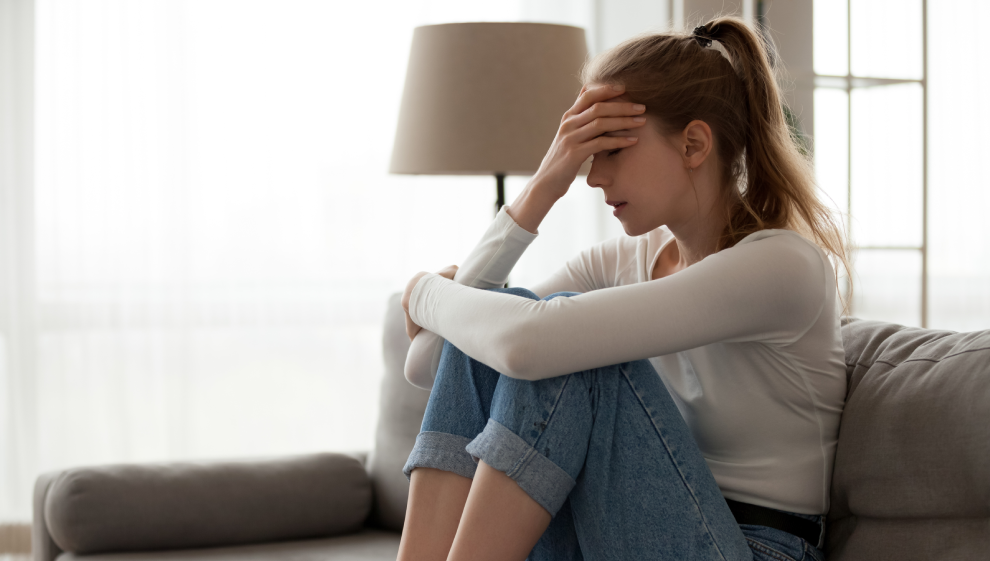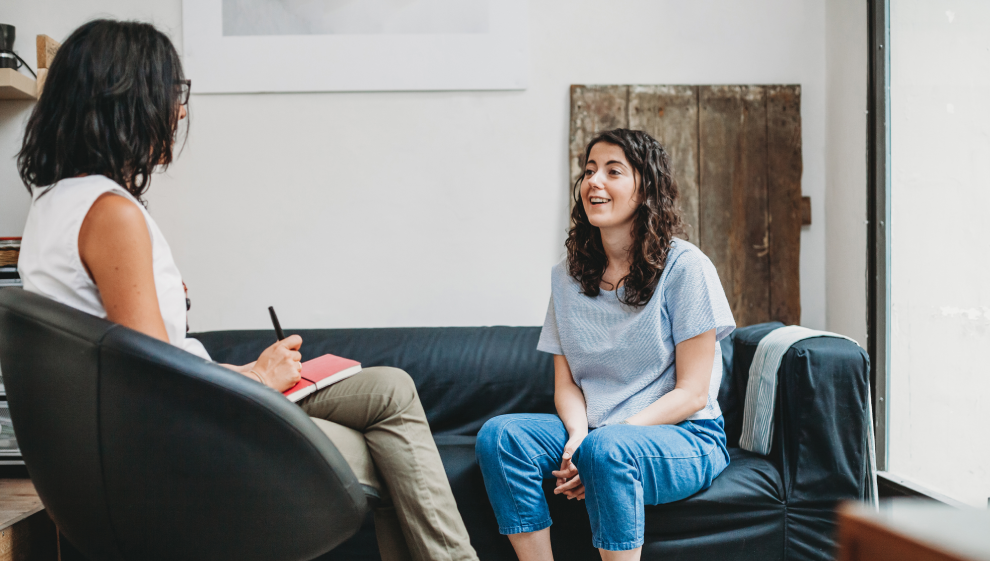Managing and treating anxiety | Causes, types and symptoms
Anxiety is an emotion that we all experience at various points in our lives which is why it's the focus of this years' Mental Health Awareness Week.
This comes at a time when we are facing a lot of uncertainty in society, something that can be a key trigger for feeling anxious. In 2022, an average of 37.1% of women and 29.9% of men reported high levels of anxiety, but there is still confusion around what anxiety is, how it can be recognised and ways to manage it.
What is anxiety?
Anxiety is a natural human response to certain stressors or threats and can manifest in feelings such as worry, fear and physical discomfort. Anxiety is common to us all however when it starts to become distressing, persistent and impacts on our ability to function in key areas of our life, it starts to become a problem.
Although the symptoms of anxiety can feel particularly unpleasant, it can be used to our advantage in order to drive us to work harder or to achieve a particular goal. Anxiety is also good in that it helps to keep us safe. When there is a threat, our anxiety or stress response is activated, and the body gets ready to ensure our survival.
This is best known as the ‘fight or flight’ response which is where our heart rate increases and the body releases hormones to enable us to survive. When this response happens there is an increase in our breathing, heart rate and blood pressure to prepare us to ward off danger. Other bodily functions reduce in activity such as our digestive system, as these are not required at this time.

When any threat or perceived threat is over, the body returns to its usual levels of functioning, however, when we are exposed to ongoing stressors or, for example, constant worrying thoughts we can find that our anxiety levels remain heightened rather than return to our normal baseline.
When anxiety is severe or on going it can start to impact how we function which makes daily tasks become difficult, such as our ability to work, concentrate, sleep, socialising and feeling able to take care of ourselves.
What causes anxiety?
Sometimes there are clear external stressors that can cause anxiety, however there is not always a clear trigger for our anxiety response. We can be unaware of thought processes that may be contributing to our anxiety.
This means that anxiety can persist for longer periods of time and can be difficult to manage when we are not aware of what might be maintaining our anxiety.
For some people, it can seem like anxiety creeps up on them, due to lots of little stressors building up over time without them realising. For others, anxiety could be triggered by any of the following factors, or a combination of them, such as;
- Traumatic incidents
- Worrying and uncertainty
- Loss
- Work related stress or common life stressors
- Significant life events
- Painful long-term health conditions
- Certain medications
- Misuse of alcohol or drugs.
Different types of anxiety
Although the symptoms of anxiety are similar for all of us, the presentations of anxiety vary greatly. Anxiety can manifest in the following ways:
- Generalised anxiety (GA) – having lots of worries about lots of things. This is one of the more common types of anxiety, particularly in younger people
- Social anxiety – anxiety that emerges specifically in social situations
- Health anxiety – anxiety related to fears about having a physical illness
- Phobias – anxiety triggered by a fear of something specific
- Agoraphobia – fear of being in open or crowded places or not be able to leave
- Panic disorder – having frequent panic attacks
- Post-traumatic stress disorder (PTSD) – reliving a distressing event and experiencing the same symptoms that were present in the original traumatic event
- Obsessive-compulsive disorder (OCD) – intrusive thoughts that lead to repetitive behaviours, which temporarily relieve the anxiety.
Although each of the above is considered a presentation of anxiety, it does not mean that treatments or symptoms associated with each will be the same.
What are the symptoms of anxiety?
The symptoms of anxiety can vary in severity and can manifest mentally, physically and in certain behaviours.
The physical symptoms of anxiety can include:
- Fast or irregular heartbeat
- Shortness of breath
- Excessive sweating
- Dry mouth or a feeling of choking
- Muscle aches and tension
- Chest pain, pressure or discomfort
- Stomach and digestive issues
- Feeling sick, dizzy, lightheaded or faint
- Tiredness
- Restlessness
- Headaches
- Feeling too cold or too hot
- Trembling or shaking.
The psychological or behavioural symptoms of anxiety can include:
- Feeling nervous, tense or fearful
- Constant worrying
- Racing thoughts
- Feeling on edge or hypervigilant
- Feeling hyperaware of yourself or self-conscious
- Feeling that people are judging you
- Irritability
- Difficulty concentrating
- Avoiding situations that you fear
- Sleep difficulties
- Panic attacks
- Feelings of terror or dread.
How is anxiety treated?
Anxiety can be treated through talking therapies and medication. Some people might choose to just use medication without therapeutic intervention and vice versa. It can be useful to use both types of treatment to manage immediate symptoms whilst new coping mechanisms are explored.
The evidenced based treatment recommend by NICE guidelines for anxiety is cognitive behavioural therapy (CBT). This approach considers how we think, feel and behave and looks at how anxiety can be maintained in a ‘vicious cycle’ and how this cycle can be broken.

A CBT therapist would help you to challenge unhelpful thoughts and behaviours, and explore helpful techniques to manage symptoms of anxiety.
Counselling can also be beneficial for talking about anxiety and is particularly helpful when anxiety is related to certain circumstances such as a relationship breakdown or financial problems.
Self-help groups or self-help tools can also be helpful. It can be beneficial to meet up with other people going through the same thing to share their experience and offer mutual support.
We can often help ourselves by making small changes to our lifestyle to help manage symptoms of anxiety. Maintaining good care of ourselves and our bodies can help alleviate symptoms of anxiety.
Here are some tips for self-care which may help enhance feelings of wellbeing:
- Regular exercise can release anxiety-reducing chemicals and occupy our mind from unhelpful thoughts
- Engaging in mindful activities to stay in the ‘here and now’ such as going for a walk, reading or doing something creative
- Using relaxation techniques such as yoga, meditation and mindfulness to activate the ‘rest-and-digest’ system
- Consider your bedtime routines and make improvements to help switch off and sleep easier
- Write in a journal to let out your thoughts and feelings
- Spend time outside in nature
- Eat a healthy and nutritious diet
- Avoid nicotine, caffeine and alcohol, as these can increase symptoms of anxiety.
Last updated Thursday 23 January 2025
First published on Friday 12 May 2023
